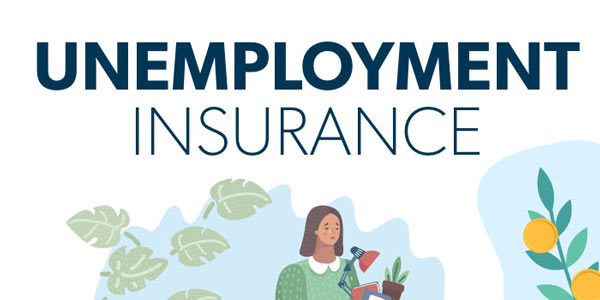Mar 05, 2023 By Kelly Walker

Are you experiencing financial stress right now due to the COVID-19 pandemic? You're not alone. Many people are facing job loss, reduced hours, and an uncertain future. Fortunately, various forms of unemployment insurance can help bridge this gap in income while you get back on your feet. If you need assistance, read on to learn how to apply for unemployment benefits today--and reclaim some degree of financial security.
Unemployment Insurance
Unemployment insurance (UI) is a government-run program that provides financial assistance to workers who have lost their jobs through no fault of their own. Generally, it covers up to the maximum amount your state allows and sends payments each week based on what you had been earning before becoming unemployed.
How much you receive in unemployment benefits depends on the amount of income you earned before losing your job and the laws in your state. In some states, UI also helps cover health care expenses as well. It's important to note that UI doesn’t cover all of your expenses, so it’s a good idea to look into other forms of assistance while you wait for the benefits.
Applying for unemployment insurance

Applying for unemployment insurance is simple and can be done online or in person depending on your state's requirements. Here are the steps you'll need to follow:
1. Visit the website of your state's labor department or call their customer service line if you have questions about the application process.
2. Gather any necessary documents, such as proof of employment, pay stubs, and tax information (if applicable).
3. Complete the application form and submit it along with any necessary supporting documents.
4. Wait for a response from the state's labor department. This process can take several weeks, so be patient.
5. Once your application is approved, you will begin to receive payments each week based on your prior income and the amount allowed by your state's laws.
It’s important to note that the amount of UI you receive may not cover all of your expenses and should only be used as a short-term solution until you find another source of income or secure full-time employment.
Additionally, some states require applicants to actively search for work while receiving unemployment benefits to remain eligible for payments.
Benefits of unemployment insurance

Unemployment insurance offers a variety of benefits to those who have lost their jobs due to no fault of their own. These include:
* A regular source of income while you search for new employment.
* Assistance with health care expenses, depending on your state.
* Money for skills training and education if needed.
* Stress relief from knowing that some of your bills are covered during a difficult time.
* Increased financial security for those with children.
* A sense of community and solidarity from knowing that other people are experiencing similar hardships.
* An extra cushion for those who don’t qualify for other forms of assistance.
* Opportunities to benefit from the latest job search tips and resources.
Unemployment insurance can make a tough situation a bit more bearable. With the right information and an understanding of how to apply, you can start taking steps toward reclaiming some degree of financial security. If you’ve been affected by COVID-19, consider applying for unemployment benefits today to help bridge the gap in income while you look for another source of employment.
By taking advantage of the unemployment insurance program, you can ensure that you and your family remain financially secure during tough times. Applying for UI is simple, so don't hesitate to reach out for assistance today.
Finding a job while receiving Unemployment benefits
Finding a new job is often the best way to regain financial stability after losing a job. While you’re receiving unemployment benefits, there are several steps you can take to increase your chances of success:
* Utilize online resources such as job search engines and social media platforms to identify potential opportunities.
* Connect with recruiters in your area that specialize in finding workers for specific industries or skill sets.
* Join local professional networks and attend networking events in person or virtually.
* Update your resume with any relevant skills or accomplishments that could help you stand out from other applicants.
* Take advantage of free training programs offered by state or federal governments to improve your marketability as an employee.
* Create a budget to ensure that your finances remain stable while you search for employment.
With the right approach, you can find job opportunities even while receiving unemployment benefits. Taking proactive steps now will help you secure financial stability in the future and give you peace of mind during an uncertain time.
Unemployment Insurance Is Administered
In the United States, unemployment insurance is administered at the state level. Each state has its eligibility requirements and payment structures. Generally speaking, eligible claimants must have been employed full-time before losing their job due to no fault of their own. To receive unemployment benefits, applicants must apply to their state’s labor department or online portal.
This process can take several weeks, so be patient. Once approved, you will typically begin to receive payments each week based on your prior income and the amount allowed by your state's laws. It’s important to note that the amount of UI you receive may not cover all of your expenses and should only be used as a short-term solution until you find another job.
Weeks of Unemployment Insurance
The length of time you can receive unemployment insurance payments varies depending on your state. Most states provide up to 26 weeks of benefits, though some states may offer as many as 39 weeks. In times of high unemployment due to a recession or pandemic, such as the current COVID-19 crisis, the federal government may extend the maximum period for which UI benefits are available.
During these periods, individuals may be able to receive unemployment payments for longer than the standard 26-week limit.
It’s important to remember that each state has its own rules and regulations regarding eligibility for and duration of unemployment insurance payments. As such, it’s best to check your state’s labor department website for detailed information about the program in your area.
Unemployment insurance can be a life-saving resource during difficult times. If you’ve recently lost your job due to layoffs or other factors related to COVID-19, don’t hesitate to apply for unemployment benefits today. By taking advantage of these programs, you can ensure that you and your family remain financially secure while you look for another source of employment.
FAQS
How do we know if we eligible for unemployment insurance?
Each state has different eligibility requirements for unemployment insurance. Generally speaking, you must have lost your job due to no fault of your own and have worked full-time before the job loss. For more information on your specific state’s requirements, contact your local labor department or read through their website for detailed information about the program in your area.
How long does it take to process an unemployment insurance application?
It can take several weeks to process an unemployment insurance application. After submitting the necessary paperwork and documentation, you should hear back about your eligibility within a few weeks. If you are approved for benefits, payments should begin shortly after that.
How often will I need to file for unemployment insurance?
Once you’ve been approved for unemployment insurance, you will usually need to file a weekly claim. This is done through your state’s labor department website or online portal. You must continue filing weekly claims and provide proof of any job search activities to remain eligible for benefits.
Conclusion
If you are out of work and facing financial instability, it’s important to consider applying for unemployment insurance benefits. You must stay informed and aware of all the available options. Applying for unemployment insurance is just one step towards getting back on your feet albeit a significant one.
A combination of competitive job searching and the use of government resources may help make the transition process smoother. Make sure that you know how to apply for unemployment insurance now and how to take advantage of the assistance that it provides.
-

How BlackRock Makes Money
May 17, 2023
-

Explaining DPO (Days Payable Outstanding) and Its Calculation
Apr 28, 2023
-

Tips for a Better Work-Life Balance as an Entrepreneur
May 20, 2023
-

Best Accounting Books
Apr 19, 2023
-

Which Real Estate Businesses Are the Best to Work For?
Mar 18, 2023
-

Value Chain vs. Supply Chain: What's the Difference?
Mar 08, 2023
-

Exodus vs Coinbase: The ultimate cryptocurrency comparison
Feb 03, 2023
-

What is Audio Editing Software
Mar 29, 2023



